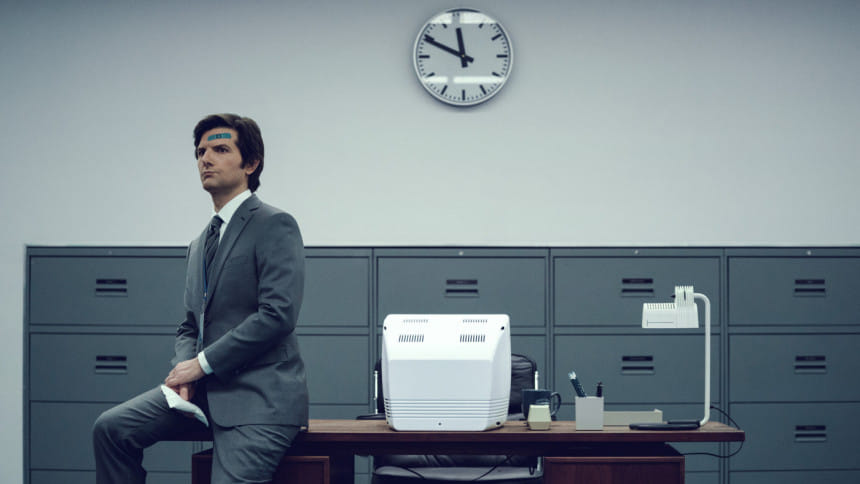Severance is immensely ambitious to a fault

The premise, and promise, of Severance is simple. Imagine a complete removal of your work self from the version of you that exists off-the-clock. While a blessing to some, the concept itself presents many questions delving into the societal, ethical, and individualistic effects this surgical alienation from labour can have on people. These conundrums are the fertile grounds in which Severance plants its seed, and the results make for one of the most ambitious shows yet to be finished — one that, despite its narrative flaws, delivers plenty of tantalising mysteries and subsequent answers that keep the audience on their toes and yelling at their screens (the last bit might be just me though).
The most important aspects of Severance make themselves apparent from the get-go. The shiny, pristine, and completely unnatural set design creates an atmosphere of surgically-designed claustrophobia, one in which all actions seem to be under a close watch. The show follows Mark, after spending a good few minutes crying in his car, entering his unnaturally bright workspace.
Descending the elevator, his eyes reel back, as if he's undergoing a seizure, and he returns, not as himself, but as his 'innie' — the work version of Mark, also known as Mark S. Upon entering, he is informed of the abrupt dismissal of his best friend, Petey. No questions about the whys or hows are entertained from Mark, and he is promptly made to return to work. The work, by the way, consists of dragging numbers into folders. A nonsensical job described as mysterious and important.
The story that unfolds from here works on multiple levels. Partly as a workplace satire, the show offers a unique perspective on corporations' involvement in alienating people from their work. The show masterfully delves into these 'innies' who are confined to exist only as workers, exploring their individual identities even within the walls of their workplace and their desire for more that ultimately brings them together. The end product is mystery, thrill, and many, many theories that demand roundtable discussions with friends. The finale for season one, in particular, was one of the most riveting hours of television I have seen in recent memory.
Season two of Severance opens with an elevator ding and Mark S. hitting the ground running. He takes off, reeling from the events of season one, running past the sterile hallways for what feels like an eternity. To what end is Mark running, and what does he end up finding? Severance, as a story, builds itself around questions like these. Answers are doled out in small, but adequate portions, and the audience keeps asking for more.
This is also perhaps one big spot where Severance falters. From a technical perspective, the direction ranges from great to near perfection (with season two's episode seven being a highlight). The acting does not falter for a second. The storytelling, too, is ambitious, almost too ambitious at times, as it is clear in parts of season two that the show certainly has an endgame, but it struggles to fill the gaps on how to get there. Certain episodes linger too long on plot beats that go nowhere, while other episodes include subplots filled with baffling character writing. While it manages to recuperate most of the damage by the end, season two tends to feel like a meandering journey.
Created and written largely by Dan Erickson, who used to work at a door factory before this, Severance feels like an inspired piece of work that dives into corporate culture and the many ways people try to continue living in the decaying dystopia that corporations tend to create.

 For all latest news, follow The Daily Star's Google News channel.
For all latest news, follow The Daily Star's Google News channel. 



Comments